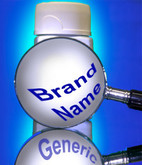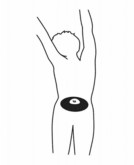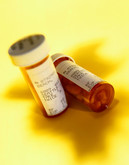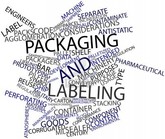Generics/Research
Availability of medicines and the sustainable development of the national health system in Russia
The modernization of the drug supply system for citizens as a multifaceted process that ensures the sustainable development of the national health system is the focus of attention of the economy, the state and society. In order to study this, authors from Russia carried out a study to analyse the availability of medicines for the population for the treatment of cardiovascular diseases in 2011 and 2019 [1].
Generic etoricoxib is equivalent to the reference drug
A study comparing generic etoricoxib (ETO) to the originator drug Arcoxia [1] finds that the generic version of the drug is bioequivalent to the reference compound, according to the Association of Southeast Asian Nation (ASEAN) bioequivalence guidelines.
High price of cancer medicines make treatment unaffordable globally
Cancer is the leading cause of death worldwide. Currently, there are increasing concerns about the price of cancer medicines and how this can limit patient access to lifesaving treatments. Now, a new study published in Applied Health Economics and Health Policy [1] calls for strengthened pricing policies that can ensure affordable cancer treatment for all.
US brand-name drug market exclusivity periods remain relatively unchanged over the past decade
The passage in 1984 of the Hatch-Waxman Act set into motion sweeping changes to the US brand-name and generic drug competitive environment. It greatly increased generic drug competition for small-molecule drugs, by establishing a new abbreviated new drug application (ANDA) generic drug approval process that substantially reduced the time and cost associated with a generic drug marketing application submitted to the US Food and Drug Administration (FDA). In addition, it created incentives for challenges to brand-name drug patents, while also creating incentives for continued medical innovation and new drug development by drug innovators.
Considerations for the evaluation of generic IUDs containing levonorgestrel
Fertility regulation benefits the population, protecting the right to life and health, supporting the right of individuals to enjoy their sexuality and the right of children to be born wanted. In addition, it safeguards people’s freedom of conscience to decide whether or not to use a contraceptive method, based on their personal values, safeguards the principle of non-maleficence and the principle of equity and justice. This is fulfilled when services are universally accessible without discrimination and authorities monitor that this condition is respected. Currently, different types of contraceptive methods are available, which are classified into hormonal, barrier, long-acting reversible contraception, emergency contraception and sterilization. All of them must meet the basic conditions of efficacy, safety, acceptability, availability and reversibility.
Generic pharmaceutical policies in the MENA region
Healthcare systems in the Middle East & North Africa (MENA) region face challenges in service funding and delivery with policy emphasis in the region currently focused on controlling pharmaceutical expenditure. A key component of pharmaceutical cost-containment is a strong policy for generics aiming to improve uptake and access.
The generics market in Brazil
The Brazilian pharmaceutical market has undergone many changes since the introduction of generic drug laws.
Laws on packaging, substitution and prescription of generics in Brazil
According to the National Health Surveillance Agency (Agencia Nacional de Vigilancia Sanitaria, ANVISA), the approval of medicines aims to improve the Brazilian population's access to better, safe and quality medicines at lower prices.
Legal requirements on equivalence studies for generics in Brazil
The creation of the legal system for generic medicines began with the introduction of Law Number 9787 in February 1999 (Brazil 1999). According to the National Health Surveillance Agency (Agencia Nacional de Vigilancia Sanitaria, ANVISA), the approval of medicines aims to improve the Brazilian population's access to better, safe and quality medicines at lower prices.
Backlog of drug patents in Brazil
In an article on ‘How much does the backlog on drug patents cost for health in Brazil?’, Jannuzzi et al. in 2017 [1] showed backlogs in the analysis of patent applications in Brazil. These delays, known as ‘backlogs‘, extend the term of patents granted on medicines and delay the entry of generics into the market.













